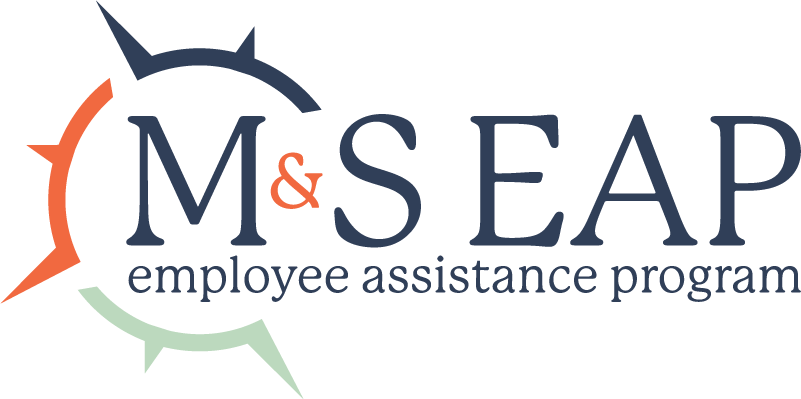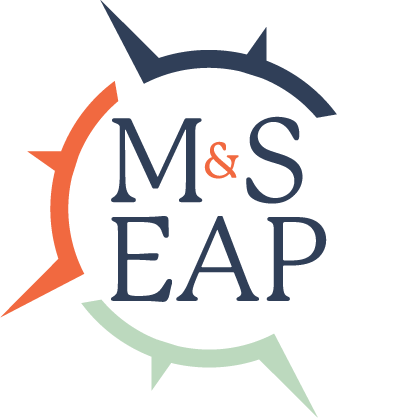Recognizing When Struggling Employees Should Seek Counseling

It’s often discussed how important leaving work at work is for an employee’s mental health — feeling like you’re constantly on the clock can quickly lead to burnout and exhaustion, not to mention a decline in work performance. But it doesn’t always work in reverse – leaving home at home isn’t really a concept because the home life, the things which occur outside of the workplace in everyday life, are what makes a person who they are.
When things outside the workplace begin overwhelming an employee, it’s to be expected that their work may take a backseat. So, what can an employer do when they notice a struggling employee?
Employee mental health
When you experience a crisis or stressful event, your mind may have a hard time compartmentalizing, or putting aside the stressful thing while you focus on something else; for this reason, you may feel overwhelmed, with little headspace to focus on anything else, including your work.
Many situations which occur in life can interrupt one’s mental health and interfere with responsibilities, including:
- Divorce or the end of a long-term relationship
- Grief or loss of some kind
- A transition, such as moving, having a baby or some other change in the family
- A pre-existing mental health condition or addiction
- A home life experiencing some form of upset or unrest
An employee going through anything upsetting or difficult to handle may eventually show outward signs of internal struggle. When this occurs, an employer might consider having a conversation with their employee about their openness to and the benefits of employee counseling.
Common warning signs of mental health problems
Before you recommend counseling, however, it’s important to be aware of the signs to look for to ensure that your employee isn’t caught off guard by the conversation. Physical illnesses have visible symptoms, as do mental health disorders, and a sudden change in behavior is the best indicator that someone isn’t well. A staff member experiencing a personal crisis may exhibit any of the following negative behaviors:
- Excessive tardiness or absenteeism
- Increased irritability — they may be more argumentative or likely to complain about minor offenses
- Declining work performance
- Poor personal hygiene or grooming
- Disorganization, especially from someone previously well-organized
- Inability to focus
- Failure to complete routine tasks
- Disappearing throughout the workday
Any single one of these behaviors might simply be a typical performance problem. But when multiple symptoms appear over a short time, however, there is cause for concern. Not to mention, if you discover the physical presence of drugs or alcohol at work, take immediate action.
What confuses many managers is the lack of formal processes to deal with situations like employee mental health as the cause is not work-related, and standard disciplinary measures are often counterproductive. An employee counseling program is more likely to address the root of the problem.
Benefits of employee counseling
Programs known as employee assistance programs (EAPs) are connected to your business and give your employees direct access to counseling services — if your organization has an EAP, it is the best place to recommend for those staff members in crisis or who have shared challenges they are currently facing.
EAP benefits such as employee counseling services can effectively help staff members dealing with mental health concerns. Instead of depending on harsh disciplinary measures, issues are addressed and resolved through therapy sessions that focus on restoring and strengthening your employee’s emotional health. By addressing the root cause of negative workplace behavior, you help your employees improve their quality of life at work and at home.
Additional benefits of employee counseling through an EAP program include:
- 24/7 confidential assistance
- No-cost counseling for employees
- Additional therapy options for immediate family members of employees
- Reduced absenteeism, tardiness and turnover as a result of improved employee mental health
- Confidentiality for all who seek services
- Access to resources that can continue to benefit employees
Talking with your employee about their mental health doesn’t need to be awkward or uncomfortable; it can be as simple as, “I’ve noticed some changes in your work recently, and wanted to see if everything is okay. I have some resources to offer you to help if you feel overwhelmed by stress.”
Taking the time to notice and showing your employee how much you care about them personally (and not just the work they do for the company), is crucial in helping all staff members maintain positive mental health.
Considering an EAP?
If your company does not already have an EAP in place, consider the benefits installing one could have on your company. For more information on workplace counseling and how to bring it into your company, contact Mazzitti & Sullivan EAP today by giving us a call at (800) 543-5080.



